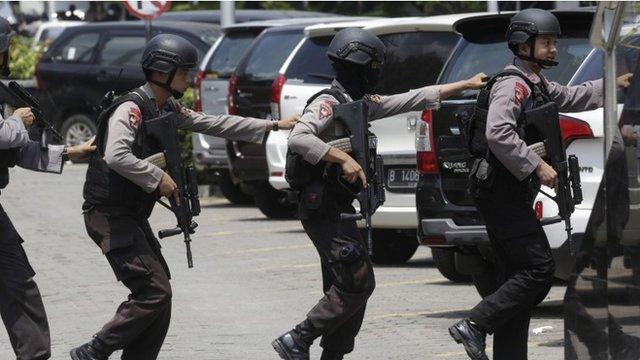The Islamic State group's influence in Indonesia
- Published
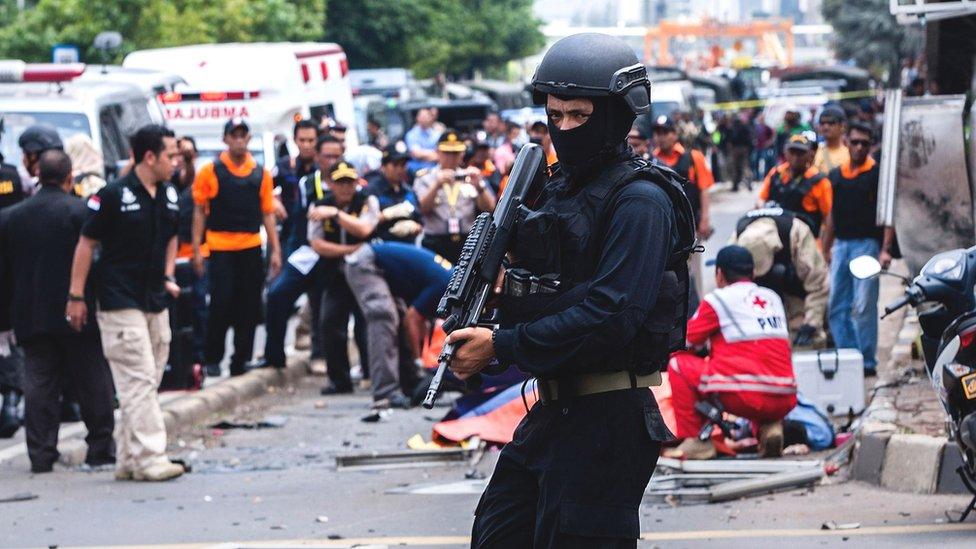
The rise of IS has reinvigorated jihadist activity in Indonesia
The threat to Indonesia from militant groups is likely to remain active and high for the forseeable future, though recent attacks by supporters of the so-called Islamic State (IS) group show that their capacity for violence remains limited for now.
Four of the eight casualties in the Jakarta terror attack in January were the attackers themselves, and a suicide bomber in Surakarta on 5 July succeeded only in killing himself and injuring one police officer. This is quite a contrast with more devastating previous incidents, the worst of which were the Bali bombings in 2002, which killed more than 200 people.
Support at home and abroad
But regional authorities and terror experts believe IS has galvanised militancy in Indonesia again after a largely successful crackdown on terror networks there in recent years.
Between 300 and 700 Indonesians are believed to have joined the group in Syria and Iraq over the past two years. In Hasakah province, Syria, they have combined with fighters from Malaysia to form their own unit, Majmu'ah al-Arkhabiliy, also known as Katibah Nusantara Daulah Islamiyah.

Indonesian authorities have identified three men as IS militant leaders in Syria (l-r): Salim Mubarok Attamimi, Bahrumsyah, and Bahrun Naim
IS has also stepped up its propaganda efforts targeting the South-East Asian region in recent months. Indonesians have appeared in two of its latest videos, threatening governments and police, and urging supporters to carry out attacks where they are if they cannot travel to the Middle East.
Up to 30 Indonesian groups have pledged allegiance to IS and some have voiced ambitions to establish an official IS province in South-East Asia. While many top militant leaders have been either killed or captured, IS-inspired cells exist and are a continuing threat, influenced by leaders both at home and abroad.
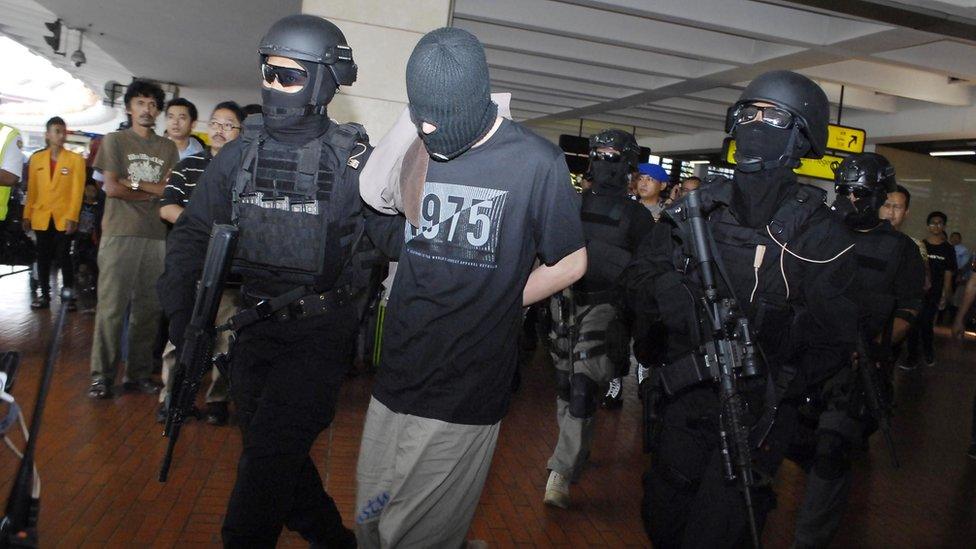
Indonesian police have arrested several foreigners suspected of working with local jihadists, including Chinese Uighurs and Turks
The Jakarta attackers are believed to have been directed by Indonesians based with IS in the Middle East, particularly one Bahrun Naim, as well as jailed local cleric Aman Abdurrahman, who is believed to lead a group called Jamaah Anshar Khilafah (JAK) from prison. The man who carried out the Surakarta bombing, Nur Rohman, is also believed to be a JAK member and to have links to Naim.
Competition may drive attacks
The Institute for Policy Analysis of Conflict (IPAC) issued a report earlier this year saying that competition between the leaders of local groups and Katibah Nusantara is likely to lead to further attacks.
In addition, al-Qaeda is likely to have a continuing interest in Indonesia as well. The Jakarta attacks were claimed by IS but also preceded by a message from al-Qaeda specifically targeting Indonesians.
Jemaah Islamiyah (JI), the al-Qaeda-inspired group responsible for previous attacks has largely splintered, and its jailed leader Abu Bakar Bashir rowed back on a previous pledge of allegiance to IS. But it is believed to have been actively recruiting again. Membership is thought to be back up to about 2,000 - the level it was at before the Bali bombings - according to IPAC's director, Sidney Jones.
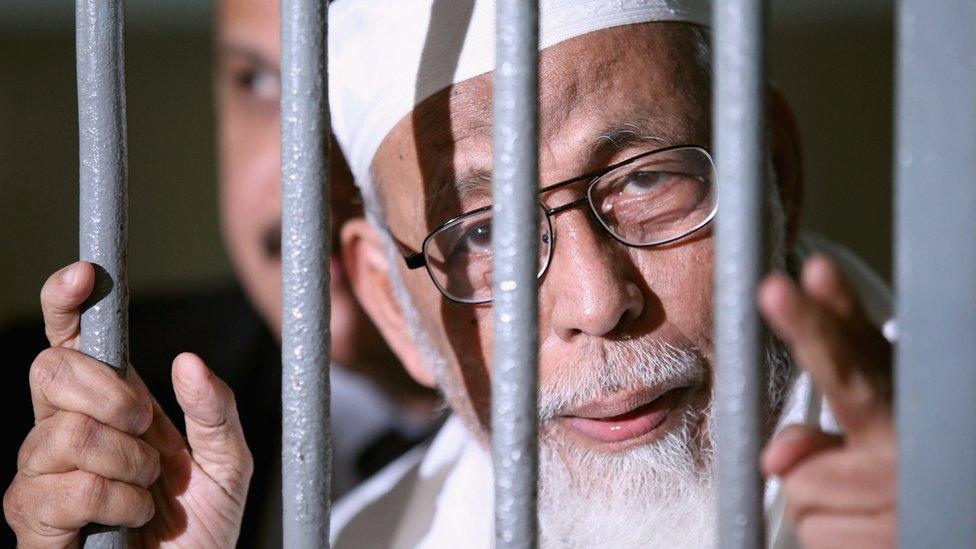
Former Jemaah Islamiyah leader Abu Bakar Ba'asyir declared his support for IS in 2014 but has recently retracted it
Reforms required
The authorities have imprisoned some 800 militants and killed more than 100 since the Bali bombings. But it has not had a great amount of success reforming them. Hundreds of militants - some with significant battlefield experience - are due to be released from prison in the coming years, and they may bolster the current ranks of jihadists.
Taufik Andrie, the executive director of Yayasan Prasasti Perdamaian, an institute that helps paroled militants, estimates that some 40% of 400 militants released as of December, for example, have returned to their radical network.
Security analysts have also questioned the authorities' ability to curb the influence of jailed jihadist leaders and the support that mosques and Islamic schools might provide to militants.
Indonesia is also attempting to tighten its anti-terrorism laws: to more clearly define terrorism and make it illegal to join militant groups like IS, enable police to detain people who support terrorist groups, and to enable them to hold terror suspects for longer periods - all issues that police say are hampering their jobs at the moment.
BBC Monitoring reports and analyses news from TV, radio, web and print media around the world. You can follow BBC Monitoring on Twitter, external and Facebook, external.
- Published19 July 2016
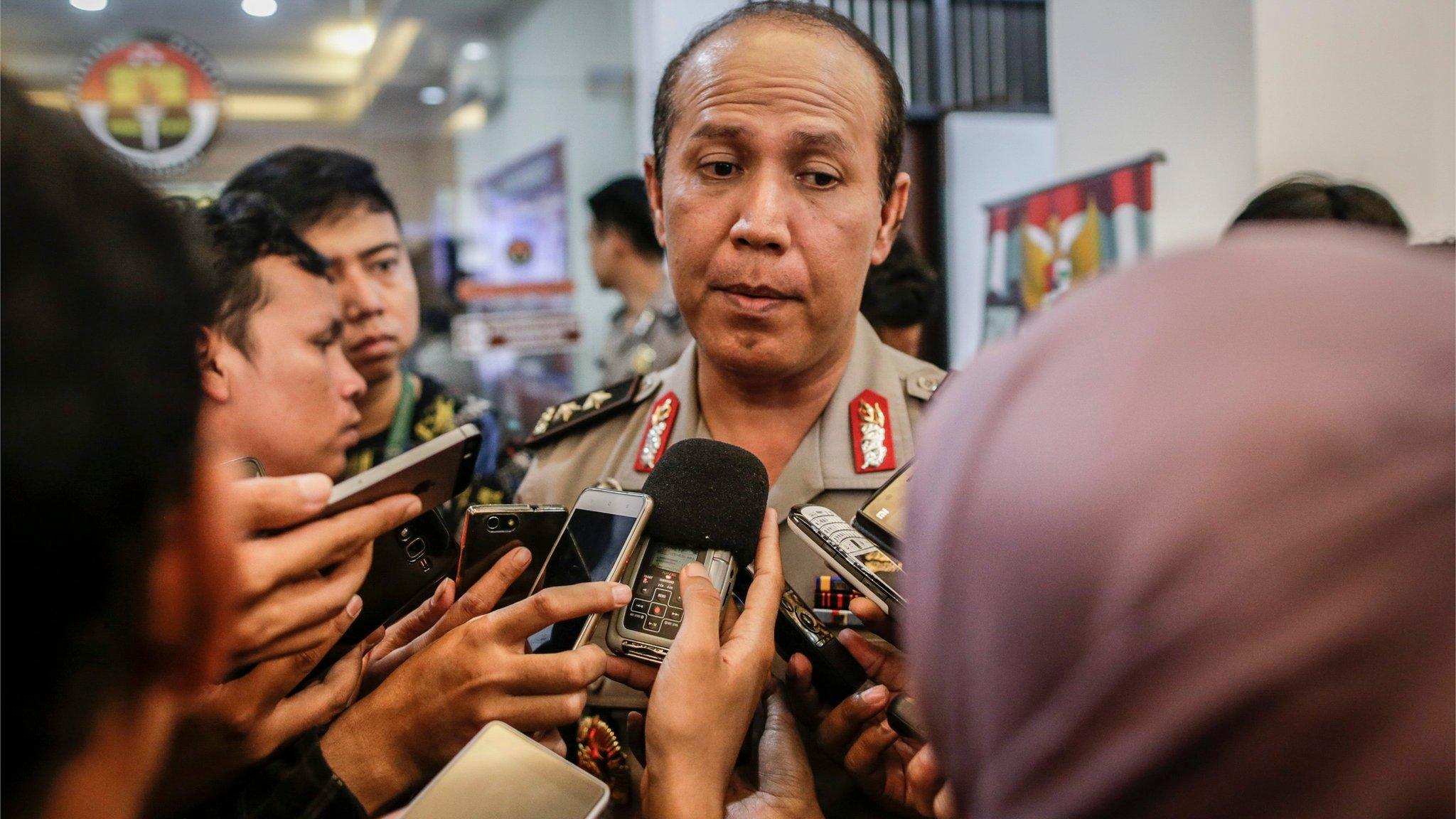
- Published14 January 2016
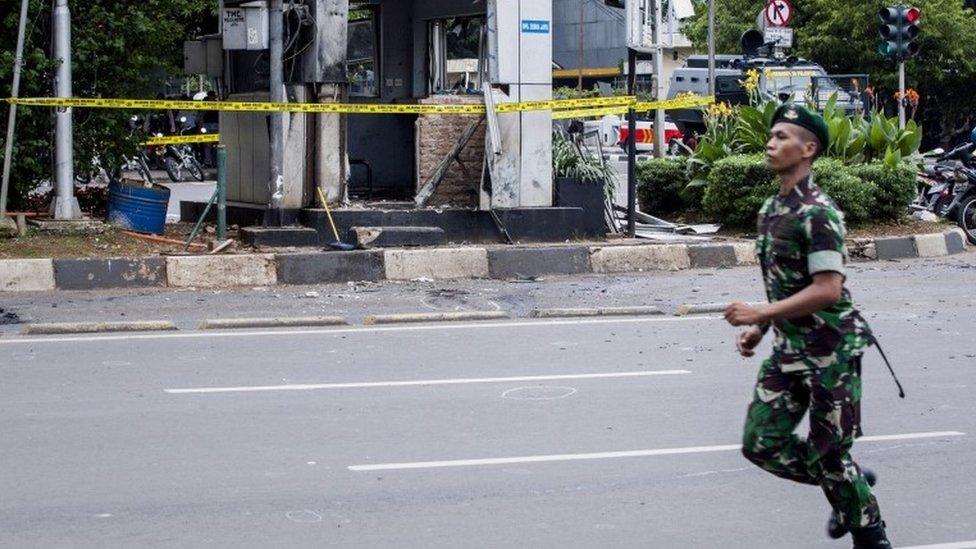
- Published14 January 2016
